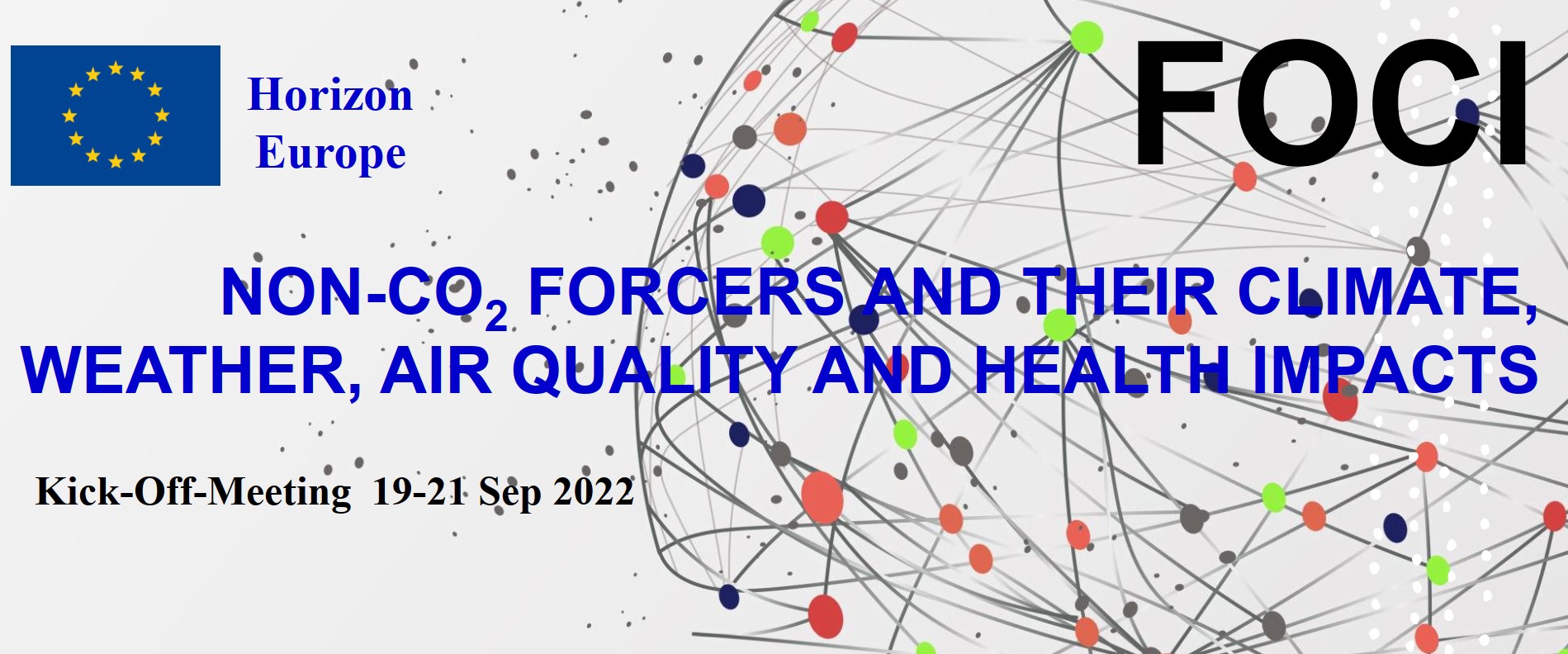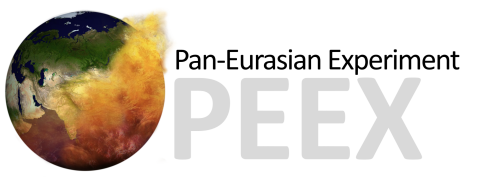Project Description

The kick-off-meeting of the Horizon Europe FOCI project “Non-CO2 Forcers and their Climate, Weather, Air Quality and Health Impacts” (Sep 2022 – Aug 2026) took place in a hybrid mode during 19-21 Sep 2022 (Prague, Czech Republic). The project is coordinated by Prof. Tomas Halenka (Charles University, Prague, Czech Republic) and Prof. Ranjeet Sokhi (University of Hertfordshire, Hartfield, United Kingdom). The FOCI consortium consists of 17 Partners (from Czech Republic, Finland, Germany, Israel, Italy, The Netherlands, Spain, Sweden, Switzerland, and UK) including 3 International Organizations – World Meteorological Organization, European Centre for Medium-Range Weather Forecasts, and World Health Organisation.
The FOCI overall aim is to improve knowledge of individual and cumulative contribution of non-CO2 radiative forcers and their precursors. The FOCI main goals are to assess impact of key radiative forcers, where and how they arise, processes of their impact on the Earth’s climate system.
The FOCI objectives include the following:
(*) to examine and evaluate the climate relevant processes and feedbacks of anthropogenic primary and secondary radiative forcing species, natural aerosols and BVOCs based on new and available observations;
(*) to integrate observational and modelling datasets and data products for improving and evaluating multiscale climate and atmospheric composition models;
(*) to improve and evaluate Earth system, regional climate and atmospheric composition models (targeting specific critical processes with largest uncertainties for improving future next generation climate projections);
(*) to improve tailored emission inventories for non-CO2 radiative forcers and scenarios (for detailed, high-resolution, multiscale climate and associated impact projections for specific regions) using innovative coupled modelling frameworks;
(*) to undertake innovative and regionally relevant integrated analysis of optimised mitigation strategies, to support climate policy, deriving multiple benefits (e.g. climate mitigation and adaptation, human health, social, economic, and developmental), quantifying sensitivity of climate system tipping points, meeting global challenge of stabilising global temperatures, and minimising the associated impacts on climate, weather, air quality and health;
(*) to implement a global outreach, dissemination and stakeholder engagement strategy (for supporting national/international policy, operational services, incl. formulating recommendations on most efficient pathways supported by integrating climate, health, urban and energy services);
(*) to guarantee efficient project implementation and delivery of its outcomes (through a robust coordination, management, monitoring infrastructure and mechanisms with independent scientific oversight).
On 19 September, the FOCI project was presented by the coordinators, as well as relevant grant agreement implementation aspects and novelties of Horizon Europe. Then, all 17 Partners/ Organizations were briefly introduced by each Partner/ Team Leader.
On 20 September, the FOCI WorkPackages (WPs) were presented by WP Leaders. These WPs are focused on: Processes controlling climate change impacts of anthropogenic non-CO2 species (WP1); Processes controlling climate change impacts of natural non-CO2 species (WP2); Improvements in Earth system modelling for climate applications (WP3); Regional model improvement and evaluation for quantifying multiscale impacts of non-CO2 forcers (WP4); Multiscale emissions processing and development of scenarios for model projections (WP5); Multiscale projections to quantify contributions and impacts on climate, weather, air quality and health (WP6); Integrated analysis of innovative, optimised mitigation options to support climate policy (WP7); Global dissemination, communication and engagement with stakeholders (WP8); and Project management, coordination and oversight (WP9).
On 21 September, a series of discussions took place on cross-cutting issues, data production/ use, first planned deliverables and milestones as well as meetings of the project management committee (General Assembly, for all Partners) and the project coordination group (for WP Leaders) also took place.
Text by Tuukka Petäjä, Alexander Mahura, UHEL-INAR
